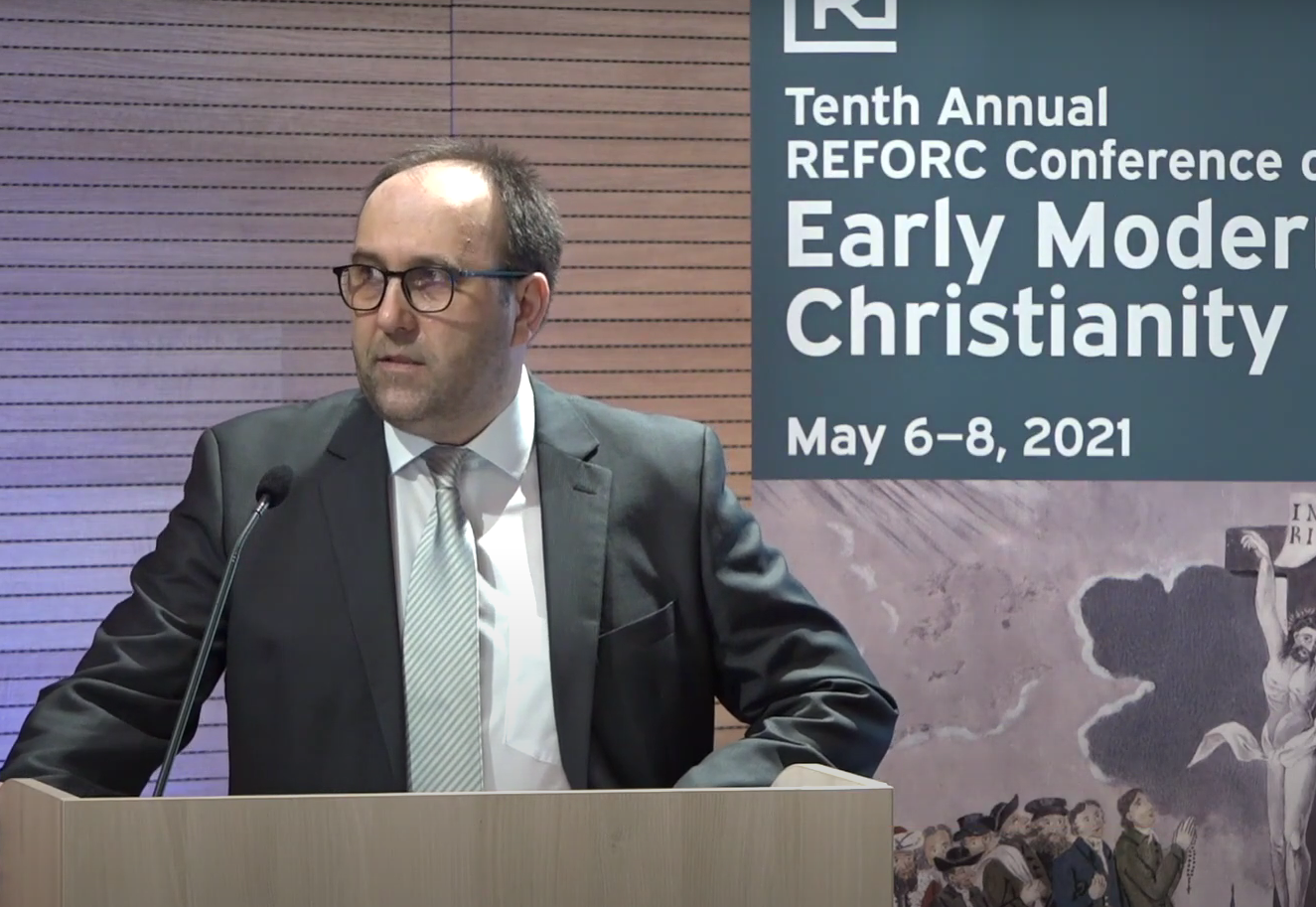18 August 2021
Recently, the Centre of Reformation Studies in Budapest, devoted to the concept of the Long Reformation, was launched. We asked the director Zsombor Tóth about his expectations, and how interested scholars could collaborate.

Why is the concept of the Long Reformation so important for Eastern Europe?
The significance of the concept of Long Reformation consists in its excellent applicability to the history of reformation in early modern Eastern Europe. With a timespan that covers some 300 years from 1500 to 1800 it appears to be the most fitting approach to the historical processes and phenomena that shaped the evolution of Reformation. Latest research concurs that modelling the historical processes of how the late medieval church had been transformed into confessionally delineated churches, or how late reformation and its culture and society had been transformed to a proto-Enlighted and later to an Enlighted culture and society seem to be best described relying on a longue durée. It is safe to say that the perspective of a Long Reformation has a particular significance not necessarily just as a new time frame stretching out the limits of the historical process of the Reformation from 1500 to 1800, but also as a methodological invention, proposing a change of scale, and a reassessment of Reformation in larger contexts and during a longer period of time.
In your announcement you refer to the possibility to revisit those cultural, social, theological or literary issues that had been shaping Reformation from 1500 to 1800 in Eastern Europe. Can you mention an example of these issues?
With a permanent eye on how the Reformation carved the emergence of a reformed culture and society, it is possible to go beyond the limits of the standard Reformation master narrative articulated from the perspective of a strictly interpreted Ecclesiastical history and point towards new and unexplored themes. As a literary historian, for instance, I am fascinated by the emergence, interaction and competition between the oral, written and printed media during the early modern era. The unique interaction of these media neither before (in medieval times) nor later, produced such a determining cultural and social impact upon both literate and illiterate people and their communication. In addition, Reformation had also augmented this impact and its consequences as it had employed literacy as the main device for spreading and imposing a new type of spirituality that often involved reading and writing. The production of both handwritten and printed texts serving the spiritual needs of those advocating or embracing a reformed piety not only hastened the break with certain medieval traditions and rituals, but brought about a complete reconfiguration of how media helped or even conditioned the performing of individual religiosity. With the suspension of the saints’ intercession, more and more reformed individuals and communities had been confronted with a new situation, they needed to find the proper media supporting their religious discourse and communication both with each other as members of a reformed church, but with God as well. Therefore, with the advent of Reformation and a general turn toward vernacular languages, the emergence of the so-called devotional literacy, complemented later on with the appearance of confessional writing and devotional literatures added new significance to early modern mediality and intermediality, which urges for intense examination and assessment of early modern print and manuscripts sources. My contention is that a better understanding of how early modern people relied on various media will surely improve our understanding of how Reformation influenced the everyday life and spirituality of not only superbly trained theologians but average men, women and children. Recent scholarship emphasizes the outstanding significance of the so-called lay experience, which refers to the perception of Reformation amongst lay people, an extremely important insight that has often been ignored by standard account of ecclesiastical history. To answer more simply the question, the study of early modern vernacular and Latin devotional literacy in order to construe the particularities of a lay experience, is certainly one of the paramount thematic issues worth revisiting.
You are open to collaborate with new partners, says the announcement. What would you like to say to interested institutions or individuals in this respect?
Understanding Reformation in a truly multidisciplinary approach implies a sustained and complex collective effort. Unavoidably, every individual scholarly effort need be completed and multiplied or refined by collective team efforts that will provide a historiographic and methodologic plurality to individual findings. Taken into account these facts, I envisage the study of Long Reformation in Eastern Europe as a multidisciplinary enterprise, open to anyone able to contribute with new findings, methods or ideas. Plurality appears to be the dominant trend of the scholarship and research on Reformation.
What kind of scholarly input could be of special interest for the Centre?
First of all, I would be happy to be offered ideas, projects or findings relying on comparative approaches. The master narrative of European Reformation should not be a uniform or unarticulated story consisting of similar episodes, but a narrative attempt comprising variety or even cultural otherness. As it is certainly impossible to incorporate the development and progress of Reformation related events in one single master narrative. Furthermore, the disparate episodes of Reformations both in Western and Eastern Europe can only be described in different intervals as their progress and consummation surely had a different pace. Therefore, I am expecting proposals, ideas or findings insisting on the use of a comparative approach in order to reveal those major cultural and social differences which testify for the complexity and variety of a Long Reformation all over Europe.
Flyer Long Reformation in Eastern Europe
Website Long Reformation in Eastern Europe
Launch of the Centre for Reformation for Reformation Studies in Budapest